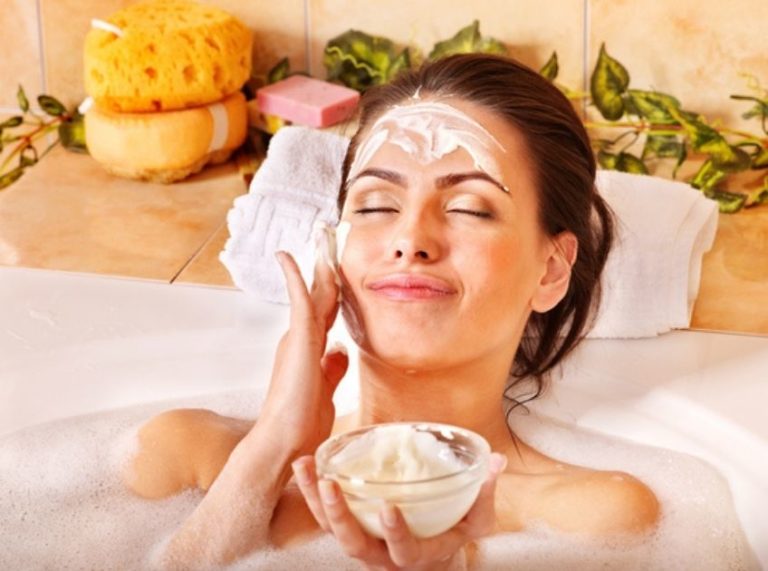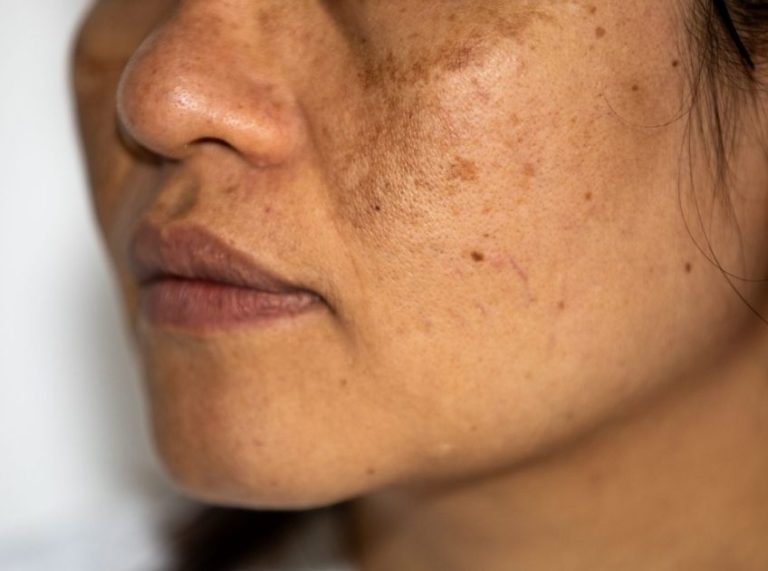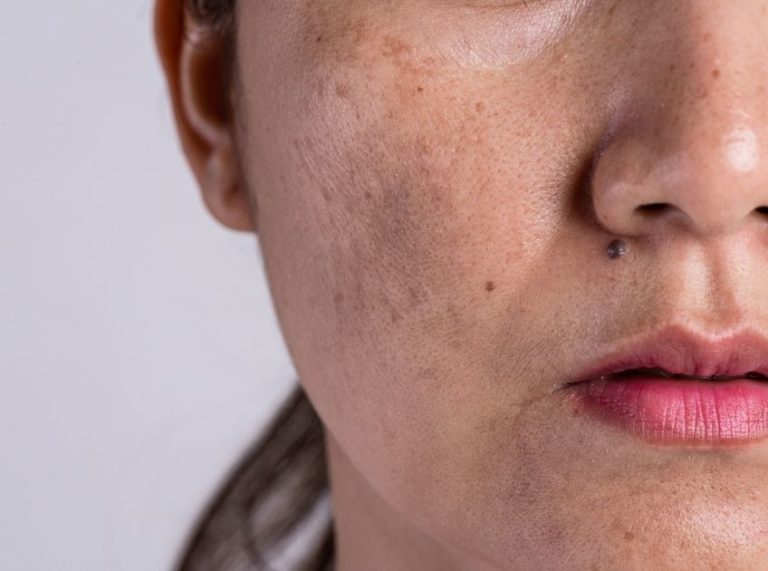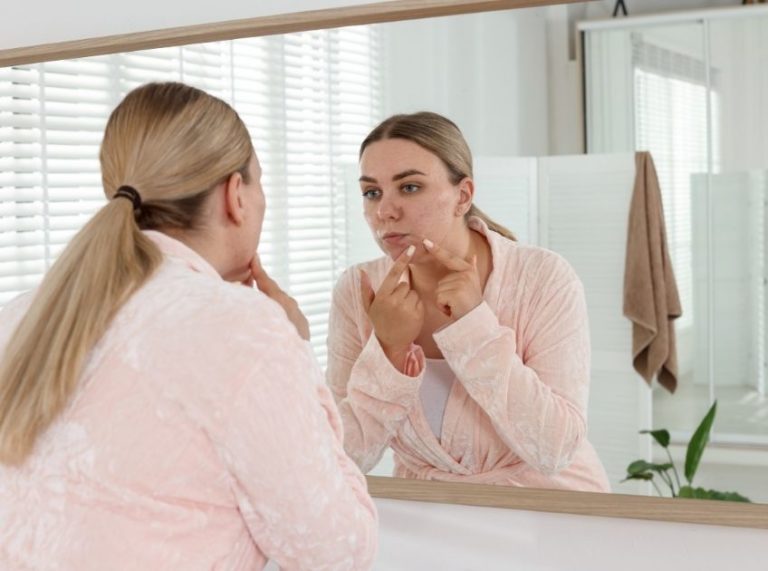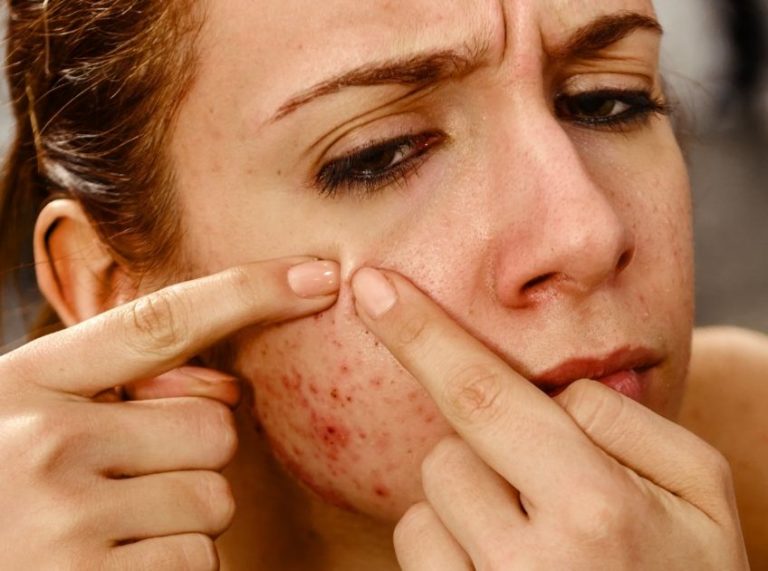
Important: This article is for informational purposes only. Please read our full disclaimer for more details.
Finding the perfect soap isn’t just about scent or lather—it’s about protecting your skin’s natural barrier, avoiding irritation, and maintaining hydration. With numerous options available on the market, understanding your skin type and the ingredients in your soap is crucial for achieving healthy, radiant skin.
How Does Soap Work on Your Skin?
Soap is a surfactant—it helps lift dirt, oil, sweat, and dead skin cells off the surface of your skin, allowing them to be rinsed away with water. Traditional soap is made from fats and lye, creating a cleansing agent that binds with impurities (1).
However, soaps also strip away natural oils, which can leave your skin feeling dry or tight, especially if they are not formulated for your skin type.
Modern soaps may contain added moisturizers, mild cleansers (surfactants), or botanicals tailored for specific skin concerns, helping you cleanse without compromising your skin’s balance (2).
Types of Soaps You’ll Find on the Shelf
The market is packed with various soaps catering to different preferences and skin needs. Here are the most common types you’ll find—and what makes them unique:
- Bar Soaps
Traditional bar soaps are made with lye and fats/oils. They tend to be more alkaline and can strip natural oils from the skin, though many newer formulations include moisturizing agents like glycerin or oils. - Liquid Soaps
Usually milder than bar soaps, these often use synthetic detergents instead of lye. They’re great for dry or sensitive skin due to their gentle formulations and hydrating ingredients. - Glycerin Soaps
Known for their transparent look and moisturizing properties, glycerin soaps help retain skin moisture, making them ideal for dry or dehydrated skin types. - Syndet Bars (Synthetic Detergent Bars)
These are soap-free cleansing bars with a pH closer to that of skin (around 5.5). Recommended by dermatologists for sensitive or problematic skin. - Castile Soaps
Made primarily from olive oil, these vegetable-based soaps are biodegradable, gentle, and suitable for most skin types—especially sensitive or allergy-prone skin. - Medicated Soaps
These contain active ingredients like sulfur, salicylic acid, or triclosan, designed to treat conditions such as acne, eczema, or fungal infections. - Herbal and Ayurvedic Soaps
Often made with essential oils, turmeric, neem, tulsi, and other botanicals, these cater to those seeking natural alternatives. - Exfoliating Soaps
Infused with scrub particles like oatmeal, apricot seeds, or coffee, these help slough off dead skin. Best used a few times a week depending on skin tolerance. - Moisturizing Soaps
Contain ingredients like cocoa butter, aloe vera, or honey. These are beneficial for dry, flaky skin or during colder months. - Antibacterial Soaps
Formulated to kill bacteria on the skin’s surface. Often used for body odor control or in clinical settings—but not ideal for everyday use, as they can be too drying.
How to Match the Right Soap to Your Skin Type
Choosing the correct soap means understanding your skin’s unique characteristics and needs. Here’s a deeper look into what works best:
1. Dry Skin
- Look for soaps labeled as “moisturizing,” “nourishing,” or “hydrating.”
- Glycerin, olive oil, coconut oil, shea butter, and honey are key ingredients to look for.
- Avoid bar soaps with strong detergents or alcohol, as they strip away essential oils.
2. Oily Skin
- Choose soaps with ingredients like tea tree oil, neem, charcoal, or salicylic acid to absorb excess sebum.
- Clay-based or exfoliating soaps can help prevent clogged pores and reduce shine.
- Avoid overly creamy or lotion-based bars that may further clog pores.
3. Sensitive Skin
- Hypoallergenic, fragrance-free, and dye-free soaps are ideal.
- Look for gentle plant-based options such as chamomile, calendula, or oatmeal.
- Avoid soaps with strong essential oils or alcohol that may trigger redness or itching.
4. Combination Skin
- Use a balanced soap with mild surfactants that cleanses without over-drying.
- Consider alternating between a hydrating soap and an oil-controlling one depending on climate and season.
- Soaps with a neutral pH (close to 5.5) can help maintain overall skin health.
5. Acne-Prone Skin
- Look for soaps with benzoyl peroxide, salicylic acid, sulfur, or tea tree oil to fight acne-causing bacteria.
- Foaming formulas can help remove oil, but use them with caution to prevent dryness.
- Use targeted soaps only on breakout-prone areas—follow with a gentle cleanser to balance skin.
6. Mature or Aging Skin
- Go for soaps with collagen boosters, hyaluronic acid, or antioxidants like vitamin E.
- Creamy, moisturizing bars help combat dryness and improve skin elasticity.
- Avoid overly astringent or stripping soaps that enhance fine lines or dullness.
Smart Tips for Picking the Perfect Soap
Choosing the best soap is a mix of science and self-awareness. Keep these tips in mind:
- Read the Label: Look for terms like “pH balanced,” “non-comedogenic,” “fragrance-free,” and “for sensitive skin.”
- Check the Ingredients: Avoid soaps with parabens, harsh sulfates, and synthetic colors if your skin is reactive.
- Do a Patch Test: Always test a new soap on a small area before regular use.
- Consider Climate and Season: Use richer, hydrating soaps in winter and lighter, oil-controlling ones in summer.
- Don’t Overuse Medicated Soaps: They are effective but can strip the skin if overused—alternate with a gentle cleanser.
Top 10 Best Soaps for different Skin types
- Dove Beauty Bar Sensitive Skin (Buy Here)
- CeraVe Hydrating Cleanser Bar (Buy here)
- Cetaphil Gentle Cleansing Bar (Buy here)
- AVEENO Naturals Moisturizing Bar for Dry Skin (Buy Here)
- Biosulfur Grisi Acne Treatment Soap (Buy here)
- SAISZE Activated Charcoal Soap Bar (Buy here)
- Sebamed Cleansing Bar for Sensitive Skin (Buy Here)
- Dr. Bronner’s Pure-Castile Liquid Soap (Buy Here)
- O NATURALS 100% Natural Bar Soap (Buy Here)
- Crate 61, Natural Bar Soap, Vegan, Lavender, Handmade Soap (Buy Here)
Soaps for Specific skin types
| Soap | Best For |
|---|---|
| Dove Sensitive Beauty Bar, CeraVe Hydrating Bar, Cetaphil Gentle Cleansing Bar, Aveeno Skin Relief Wash, JuvaBalm Organic Soap, Sebamed Bar | Dry, sensitive, or eczema-prone skin |
| Biosulfur Grisi Acne Soap, SAISZE Activated Charcoal Soap | Oily, acne-prone skin |
| Dr. Bronner’s Castile Liquid Soap | Versatile use; all skin types |
Frequently Asked Questions (FAQ’S)
1. Can I use body soap on my face?
A. Generally, no. The skin on your face is more sensitive and may react to harsher ingredients in body soap. Use a cleanser specifically designed for facial skin.
2. Is natural or organic soap always better?
A. Not necessarily. While natural soaps often contain fewer chemicals, you should still check for allergens or irritants like strong essential oils. “Natural” doesn’t always mean “safe for all.”
3. How often should I change soaps?
A. If your skin changes due to weather, age, or health conditions, it might be time to adjust your soap. Otherwise, stick with a formula that works unless irritation or new concerns arise.
The Bottom Line: Choose What Your Skin Loves
Choosing the best soap is more than a hygiene routine—it’s a step toward maintaining your skin’s natural balance and glow. Whether you’re managing dryness, acne, or sensitivity, there’s a formula out there for your skin’s unique needs. Pay attention to ingredients, test before full use, and align your choice with your skin goals. The right soap can be a game changer in your skincare journey.

